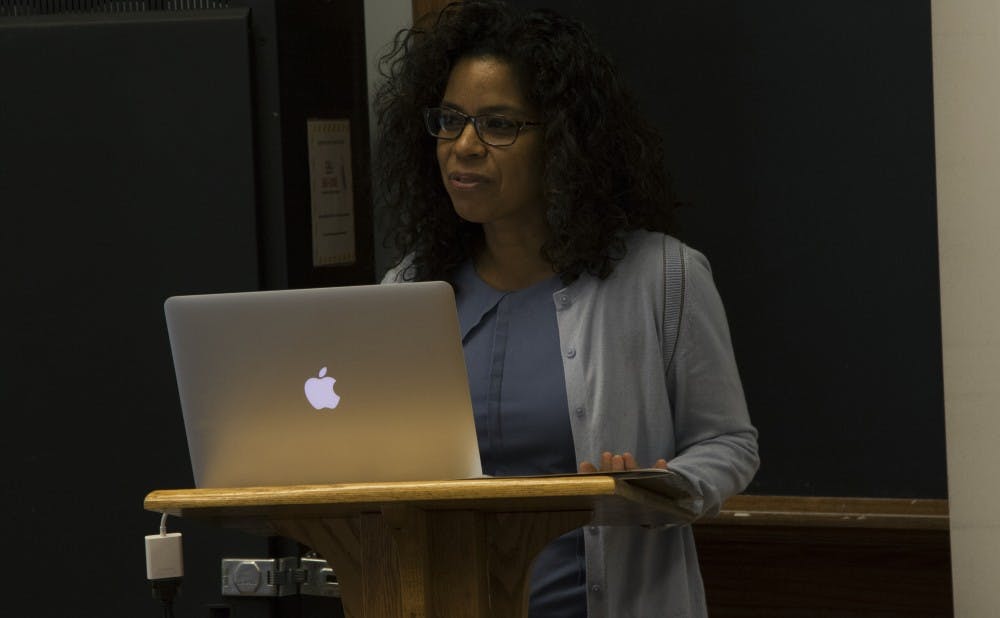How can we see the recent “resurgence” of white supremacy as a sign of its weakness, rather than one of its dominance?
Gaye Theresa Johnson—associate professor of Chicana and Chicano studies and African American studies at the University of California at Los Angeles—attempted to answer this question Monday at a colloquium hosted by the Duke History Department in the Carr building on East Campus.
The presentation—entitled “The Black Radical Tradition and the Fragility of White Supremacy”—focused on several themes, including “radical regimes” and “the appearance of stability." During the event, Johnson shared memorable quotes from the volume "The Futures of Black Radicalism", which she recently co-edited with Alex Lubin, professor and chair of the department of American studies at the University of New Mexico.
“White supremacy seems more stable than ever, [but] it’s actually less stable than ever,” Johnson said, referencing the white supremacist demonstration in Charlottesville.
The presentation covered the history of African American civil rights and resistance movements in the 1960s and 1970s. Johnson emphasized how the black radical tradition is “grounded in black resistance more than five centuries in the making.”
“Without the past, and an understanding of the past, there is no future for black radicalism,” Johnson said.
Race has always been proposed as the justification for relations of power, she explained. Today, race continues to be used to justify policies such as President Donald Trump's Muslim travel ban, the proposal to build a wall along the United States-Mexico border and the repeal of the Deferred Action for Childhood Arrivals program—which has protected young undocumented immigrants from deportation.
Johnson added that the historical connection between past events and present policies continues to reveal the “hypocrisy of whiteness.”
Her recent research examines the impact of anti-immigrant sentiment and policies on the Latinx community in Los Angeles. Johnson's new book, "These Walls Will Fall: Protest at the Intersection of Immigrant Detention and Mass Incarceration," analyzes this issue by exploring how art serves as a form of social protest.
She presented one example of social protest by explaining that detainees at the Los Angeles immigrant detention center communicated with protestors by holding artwork and posters up to their windows.
When the discussion was opened up to audience members, Johnson was asked how she conducted research on this topic. Johnson noted that she contextualizes people in their historical moment, and always asks more questions to further her understanding.
“You have to honor where people are. You have to locate people in place and time,” Johnson said.
Get The Chronicle straight to your inbox
Signup for our weekly newsletter. Cancel at any time.

